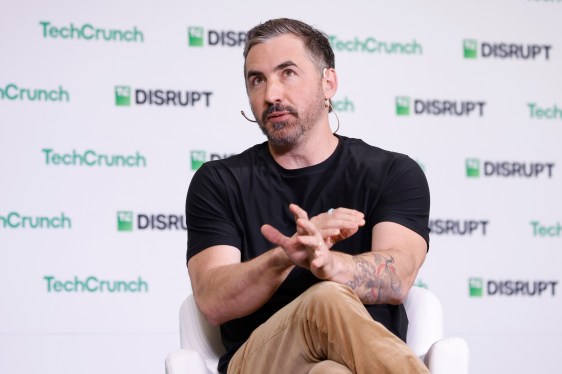The dead internet theory is real, according to Reddit co-founder Alexis Ohanian. He told Digg founder Kevin Rose that much of the internet is not human but is instead mostly bots. The two entrepreneurs have since teamed up to re-envision how to build a social community in a world where it is becoming difficult to tell who is a real person online.
Earlier this year, they bought the remaining assets of Digg, the long-shuttered news aggregation site originally founded by Rose. Digg was a staple of the Web 2.0 era. Now back under Rose’s control, the new Digg is creating a place for people to socialize and connect within online communities, similar to Reddit. However, it has different ideas about how such a platform should work at a time when bots are nearly indistinguishable from humans.
At the TechCrunch Disrupt 2025 conference, Rose explained that he sees the future of social media as more focused on protected online spaces and micro communities of trusted users. He imagines that as the cost to deploy bots drops to almost nothing, we will see bots act as though they are humans. Therefore, small trusted communities and proof that there is an actual human on the other end, which he calls proof of heartbeat, is important.
Current verification methods often involve facial recognition, ID uploads, or small credit card payments to prove someone is a person. Not everyone online will feel comfortable using these methods to access a social community. This is why Digg is looking to use newer technology, like a zero-knowledge proof, or ZKP, to verify people on its platform in the future.
Rose describes the ZKP as a fancy piece of math which does not expose who someone is but can verify something essential for their participation. For example, a moderator of a community for Oura ring owners could use the technology to verify that someone actually owns an Oura ring before allowing them to post. That verified identity could stay with them so they are known as a trusted member without having to use their real name. This could be particularly useful in communities focused on sensitive topics or health issues.
The idea that moderators should have more say over their communities is also essential to the new Digg. Rose believes these founding members should be compensated for their efforts. He recalled that when Digg first started in 2004, they were lucky to have millions of people contribute content, and they were not getting paid.
He noted that some Reddit moderators work around the clock handling spam and disputes but do not receive any share of the revenue, nor do they control the audience. He said moderators create value for a platform but cannot port that value elsewhere, capture email addresses, or stay in touch with their community on that platform, and they can be ousted from it.
Rose also pointed to issues where larger Reddit communities can become trademarked, which prevented the founder of the WallStreetBets subreddit from writing a book using the community’s name. He concluded that platforms should be more similar to Substack or Patreon, giving creators much more control over their community.

